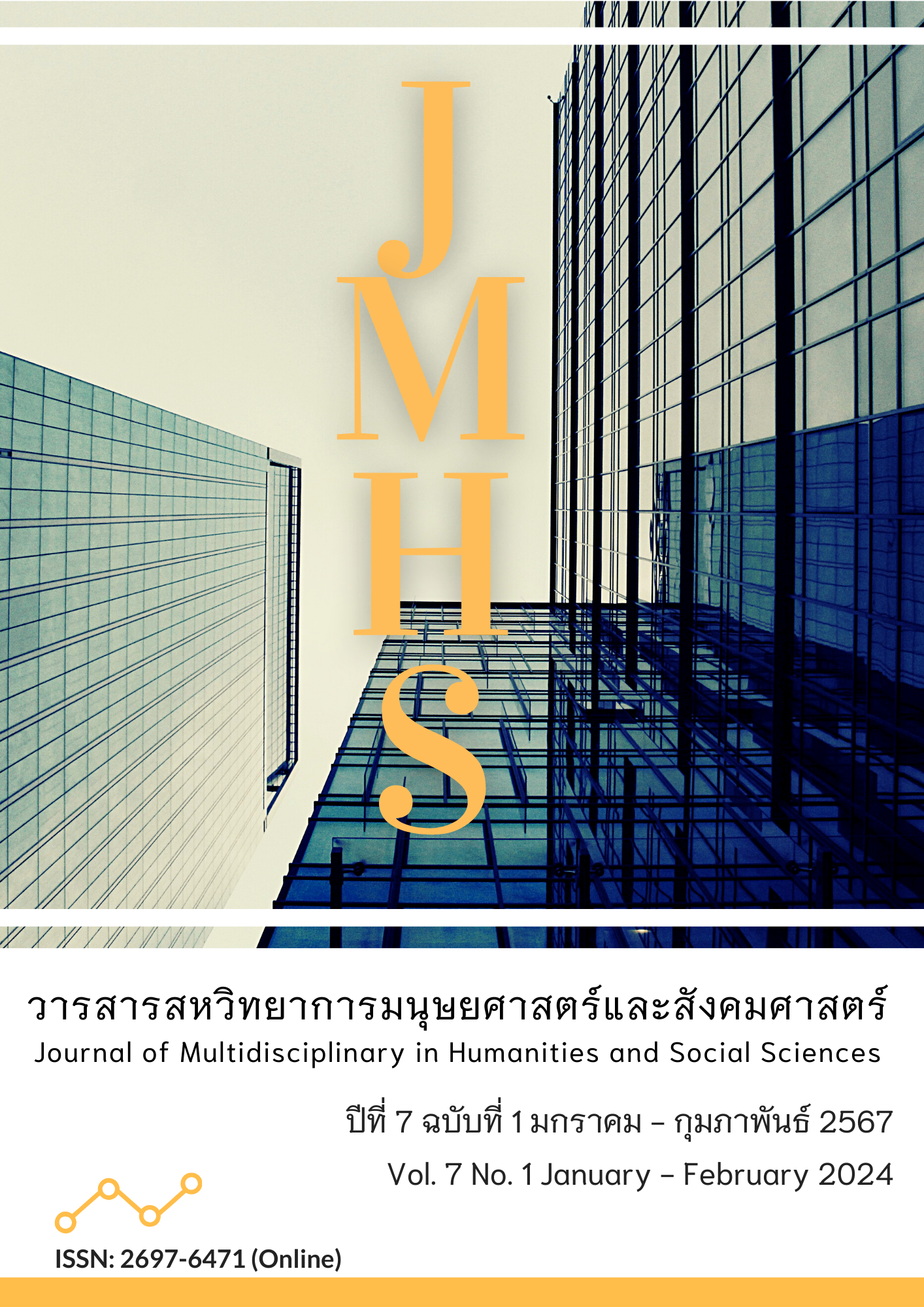The Factor of Evaluators Competencies in Assessing the Standard of The Educational Service Area Report Under Office of the Basic Education Commission
Main Article Content
Abstract
This article aimed to study the factors of evaluators competencies in assessing the Standard of the Educational Service Area report under the Office of the Basic Education Commission. The research model was qualitative research. Key informants consisted of the persons involved in monitoring and evaluating the Standard of Educational Service Area report under the Office of the Basic Education Commission, for a total of nine persons, using the purposive selection method. The instrument for collecting data was a semi-structured interview, and analyzing the data was analyzed through content analysis and then summarized into findings, classified into knowledge, skill, and attribute.
The research results showed that the factor of evaluators competencies in assessing the Standard of the Educational Service Area report under the Office of the Basic Education Commission had three factors, as follows: 1) knowledge (six items) consisted of 1.1) roles and duties of the Educational Service Area Office; 1.2) the Standard of the Educational Service Area; 1.3) Monitoring Techniques; 1.4) Efficiency of monitoring; 1.5) monitoring process; and 1.6) knowledge about technology; 2) The skill (nine items) consisted of: 2.1) summarizing the main points; 2.2) document analysis; 2.3) Report writing and presentation; 2.4) Technology in practice; 2.5) observation; 2.6) document synthesis; 2.7) Interview; 2.8) Communication; and 2.9) Teamwork; 3) attribute (nine items) consisted of 3.1) evaluation and accountability 3.2) impartially 3.3) seek knowledge; 3.4) intend; 3.5) have integrity 3.6) good personality 3.7) open-minded 3.8) Confidentiality, and 3.9) Punctuality.
Article Details

This work is licensed under a Creative Commons Attribution-NonCommercial-NoDerivatives 4.0 International License.
Views and opinions appearing in the Journal it is the responsibility of the author of the article, and does not constitute the view and responsibility of the editorial team.
References
แก้วตา ผู้พัฒนพงศ์ และ นิคม เจียรจินดา. (2561). สมรรถนะของผู้ปฏิบัติงานกับคุณภาพการให้บริการขององค์การ. วารสารเกษมบัณฑิต, 19(พิเศษ), 1-10.
คณะกรรมการขับเคลื่อนการปฏิรูปประเทศด้านการศึกษา. (2560). รายงานของคณะกรรมาธิการขับเคลื่อนการปฏิรูปประเทศด้านการศึกษา เรื่อง แผนปฏิรูประบบการประกันคุณภาพการศึกษา. กรุงเทพฯ: สำนักงานเลขาธิการสภาผู้แทนราษฎร.
ใจทิพย์ เชื้อรัตนพงษ์. (2539). การพัฒนาหลักสูตร : หลักการและแนวปฏิบัติ. กรุงเทพฯ: อลีน เพลส.
ชูชัย สมิทธิไกร. (2550). การสรรหา การคัดเลือก และการประเมินผลการปฏิบัติงานของบุคลากร. (พิมพ์ครั้งที่ 2). กรุงเทพฯ: จุฬาลงกรณ์มหาวิทยาลัย.
ณรงค์วิทย์ แสนทอง. (2547). มารู้จัก COMPETENCY กันเถอะ. กรุงเทพฯ: เอช อาร์เซ็นเตอร์.
เบญจมาภรณ์ ภิญโญพรพาณิชย์. (2560). เทคนิคการประเมิน. นนทบุรี: กรมควบคุมโรค.
ปภาวี โดนสันเทียะ. (2560). การพัฒนาตัวบ่งชี้และเกณฑ์การประเมินสมรรถนะของผู้ประเมินภายนอกด้านการอาชีวศึกษา(วิทยานิพนธ์ศึกษาศาสตรมหาบัณฑิต). มหาวิทยาลัยศรีนครินทรวิโรฒ.
สุวิมล ว่องวานิช. (2548). การวิจัยการประเมินความต้องการจำเป็น. (พิมพ์ครั้งที่ 3). กรุงเทพฯ: จุฬาลงกรณ์มหาวิทยาลัย.
สำนักงานคณะกรรมการการศึกษาขั้นพื้นฐาน. (2560). มาตรฐานสำนักงานเขตพื้นที่การศึกษา พ.ศ. 2560. กรุงเทพฯ: ชุมนุมสหกรณ์การเกษตรแห่งประเทศไทย.
สำนักงานรางวัลคุณภาพแห่งชาติ. (2560). คู่มือการสมัคร ผู้ตรวจประเมินรางวัลคุณภาพแห่งชาติ ประจำปี 2560. กรุงเทพฯ: สถาบันเพิ่มผลผลิตแห่งชาติ.
อลงกรณ์ มีสุทธา และ สมิต สัชฌุกร. (2542). การประเมินผลการปฏิบัติงาน. กรุงเทพฯ: สมาคมส่งเสริมเทคโนโลยี (ไทย - ญี่ปุ่น).
Bowen, G. A. (2009). Local-Level Stakeholder Collaboration: A Substantive Theory of Community Driven Development. Community
Development, 36(2), 73-88. https://doi.org/10.1080/155 75330509490176
Boyatzis, R. E. (1982). The Competency Manager: A Model of Effective Performance. New York: John Wiley & Sons.
McClelland, D. C. (1973). Testing For Competence Rather Than for Intelligence. American Psychologist, 28(1), 1-14.


